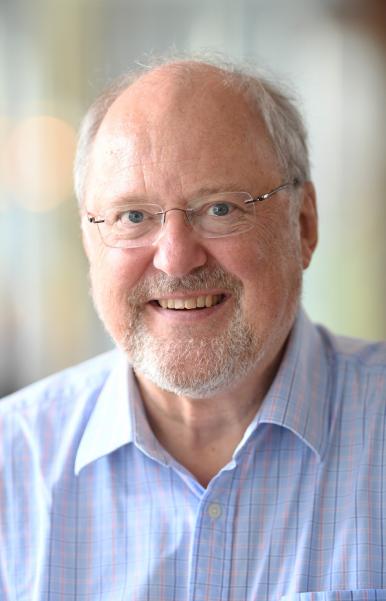My good friend Professor Richard Sullivan wrote an excellent piece for Cancer World on how to reverse the decline in the benefit per cost of cancer interventions. It gave me food for thought.
Sullivan gave an excellent description of the process of defining value through the cost-per-QALY process. Using data from clinical trials and Patient Reported Outcomes (PROs) we can develop an objective view of value which can be explored through calculating the ‘quality adjusted life year’ (the QALY) which is mapped against cost to provide the ICER – the incremental cost-effectiveness ratio.
It is a process aimed at offering balance and rational evidence of value in a comparative manner, which allows best value for limited funding to be judged. As Sullivan points out, there are many factors that distort decision making using the ICER. Unmet need, innovation, extremely burdensome disease, rare diseases, all provide reasons for not observing the cost-per-QALY too rigidly and NICE in the UK has recognised this with, for example, its end-of-life criteria. ESMO’s work on clinically meaningful benefit also helps identify where value really lies, being balanced about burdens as well as benefits.
But where is the patient’s role in all this? What can patients do to help reverse the seemingly unstoppable drain on healthcare finances which the combination of pharmaceutical company influence and inflexible process are providing? Sullivan’s list of who must do what to reverse decline did not include any role for patients, so it seems that he sees no way we can use our muscle in this debate. I hold a different view.
Firstly we should recognise what value means from a patient viewpoint. A discussion with a group of patients has come up with the following:
VALUE = Variations in Actual Life and Usual Experience
This creates a much more holistic view. It brings the benefits and burdens of treatment (which clinicians will measure) together with the psychological impact (which they usually don’t) and the lifestyle impact (which is ignored altogether by healthcare systems). Find a way of gathering data to describe these settings and weight them for inclusion as key elements of a revised QALY. It could be quite interesting.
One of the people I discussed this idea with was a breast cancer patient. She made the important point that the variations she experienced during treatment were not assessed. She had completed various quality-of-life instruments but the timing of them meant that the results were biased against recording the true impact upon her. A measure administered when she arrived at the hospital for chemotherapy did not tell anyone how she felt for the three following days, or for the next few weeks until the next treatment. This timing issue adds to the general dissatisfaction patients have with quality-of-life assessment in clinical trials. The ‘moment in time’ approach means that someone has the power to choose the timing of an assessment. This creates bias.

Add this to the facts being uncovered by the EPIC study (at Birmingham University) which is showing that QoL instruments in research are rarely implemented properly, even more rarely analysed properly, and too frequently never published at all. It is little use complaining that this same biased data is used by the health economists developing the cost per QALY. It is all they have and even if they don’t see it as a problem, I do. Apart from anything else all this is unethical behaviour.
I do not argue with the action steps that Sullivan identifies. I would only ask that the context of the patient definition of VALUE is added to the challenge facing the cancer research community and that the data that results is used to develop a more rounded method of defining value than the current methods of developing the cost-per-QALY. There is no question that the whole system currently relies on biased evidence and the best method of changing that situation is development of longitudinal studies of quality of life built on PROs administered within standard care as well as within trials.
The biggest step in that direction would be to follow one of Sullivan’s other proposed actions, the one for Public Funders. It is not just about refusing to follow industry’s lead. Make it clear that Patient Reported Outcomes are the methods which both government and charities need to see implemented properly if their funding is going to follow research. For the pharmaceutical industry and the private sector in general the message will be that funding new treatments in clinical standard of care requires VALUE to be identifiable.
Sullivan also looks further ahead, adding; “Personalised/precision medicine will only deliver when proper support for research and innovation is given across whole systems – surgery, pathology, palliative care, radiotherapy”. To which I would add patient input will enable research to deliver far more balanced evidence than it currently does.
Introducing PROs in this way also needs some urgent work by the PRO/quality of life academics. It is not about more measures or greater methodological complexity. It’s too complex now, and there are plenty of measures that have been validated to choose from. The temptation to use lots of them must be avoided. Don’t use four when one will do. It is about building-in simplicity, creating datasets that can be aggregated and compared, and providing tools that allow analysis by patients as well as by professionals.
Let me repeat Sullivan’s conclusion with some very small alterations: Somehow we have managed to get ourselves into a vicious cycle. Getting ourselves out of this is not rocket science, but nor is it easy. The ‘system’ has to be constantly challenged and patients can be at the forefront of that challenge. The good news is that, in general, everyone now recognises the problems. That’s half the battle. We now need to act to deliver cancer research and care of real value, value defined by what patients experience.
Roger Wilson is the founder of Sarcoma UK and one of the most prominent cancer advocates in Europe. He is leading the patient advocacy work on PROMs, as reported in the Spring issue of Cancer World






Leave a Reply